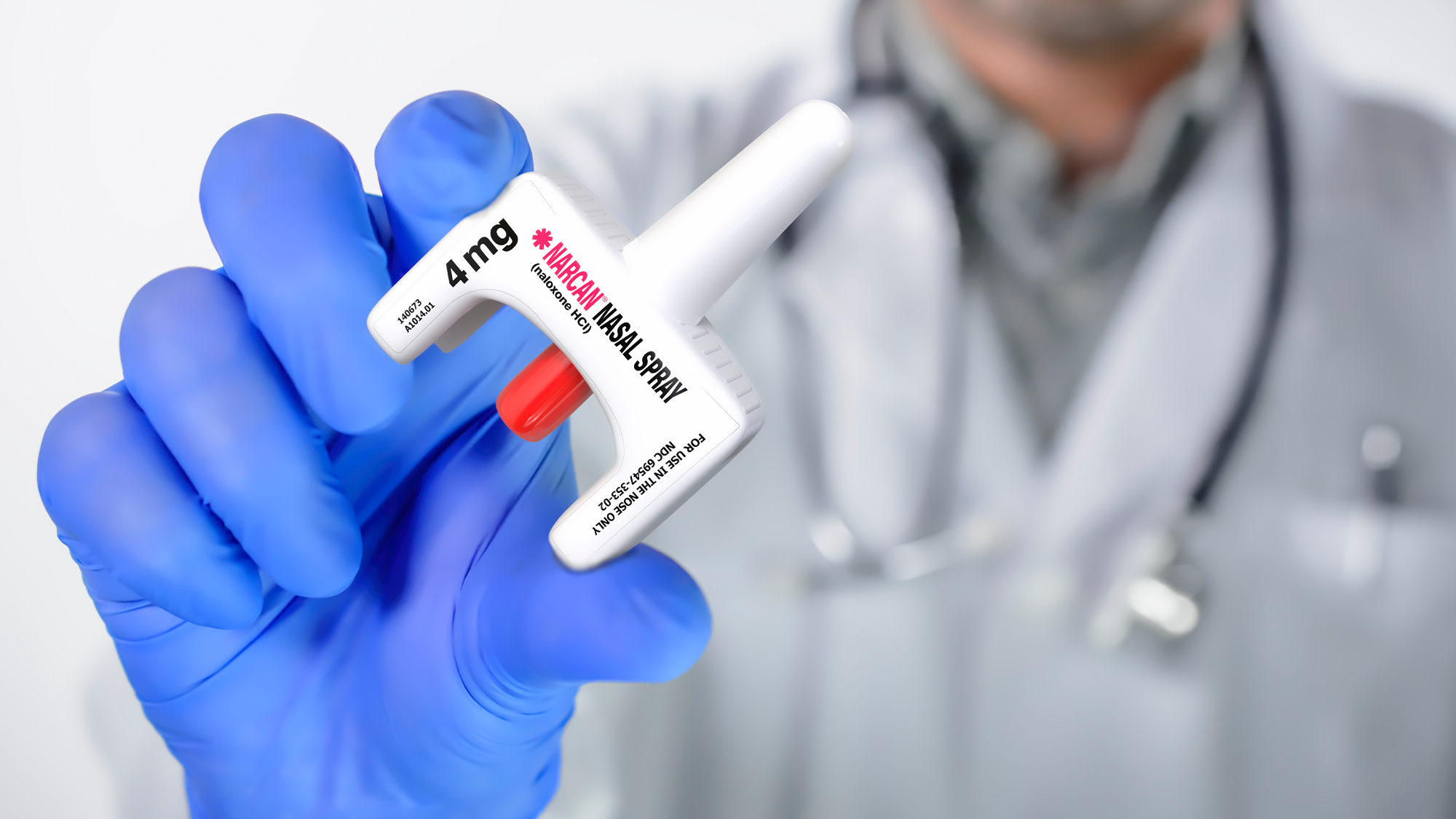

On Wednesday, the United States Food and Drug Administration (FDA) approved an over-the-counter version of naloxone, an opioid overdose reversal drug. When administered quickly, naloxone reverses the effects of an opioid overdose by restoring normal breathing. It attaches to opioid receptors to reverse and block the effects of opioids and is most effective when used within minutes of the first signs of an overdose.
The FDA’s approval makes the drug sold under the brand name NARCAN the first opioid overdose reversal drug to be available without a prescription across the United States. The FDA says that it will be sold as a single dose administered as a nasal spray. The timeline for availability and price of this will be determined by the drug’s manufacturer, Emergent BioSolutions. NBC News reported today that the company said it likely won’t be widely available until late summer 2023 and that the over-the-counter (OTC) version will be packaged in a bigger box with detailed instructions and images for easy administration.
[Related: FDA makes moves to expand life-saving Naloxone access.]
According to FDA officials, the drug could be sold in places like grocery stores, gas stations, online and even in vending machines. Increased availability will help prevent overdose deaths at an individual’s home. The price for a dose of the drug will be set by the manufacturer and has not been announced.
“The FDA remains committed to addressing the evolving complexities of the overdose crisis. As part of this work, the agency has used its regulatory authority to facilitate greater access to naloxone by encouraging the development of and approving an over-the-counter naloxone product to address the dire public health need,” FDA Commissioner Robert Califf said in a statement. “Today’s approval of OTC naloxone nasal spray will help improve access to naloxone, increase the number of locations where it’s available and help reduce opioid overdose deaths throughout the country.”
The approval came just over a month after an FDA advisory committee unanimously recommended that the regulatory agency allow naloxone to be sold over the counter. Four months ago, the FDA also filed a Federal Register notice on the safety and efficacy of the drug.
In 2014, an autoinjector containing naloxone was first approved by the FDA (Evzio) and a single-dose nasal spray (NARCAN) was green lit in 2015. A large study found that opioid overdose deaths decreased by 14 percent in states after they enacted naloxone access laws.
Up until now, naloxone has only been available as a prescription drug and, but could be purchased at certain pharmacies without a prescription in all 50 states. This is only because many states have created workarounds that help people get it directly from a pharmacist. One of the methods used is having one state health official write one prescription that can be used by every resident of that state.
[Related: Walgreens’ and CVS’ roles in the opioid crisis may cost them billions.]
These workarounds can be confusing, and they do not apply to private harm reduction services that buy naloxone in bulk from pharmaceutical companies. Requirements and restrictions are placed on the buyers, such as having a physician sign for the order, but each doctor can only sign for an order for one such group. An address that is not a private home must also be provided. These are easy requirements for hospitals to fill, but not for smaller organizations working to prevent overdose deaths. The FDA’s guidance from September 2022 clarifies that naloxone manufacturers should be able to provide opioid-overdose antidote directly to harm-reduction organizations.
The opioid crisis was declared a public health emergency in 2017 and the Department of Health and Human Services has renewed the declaration every 90 days since. According to data from the Centers for Disease Control and Prevention, drug overdoses are a leading cause of accidental death in the US and killed over 107,000 people in 2021. Opioids were involved in more than 80,000 of those deaths.
